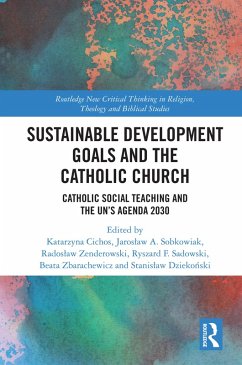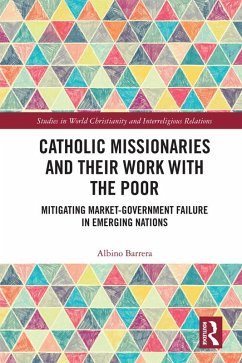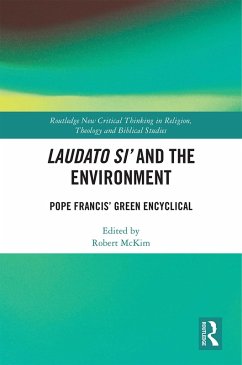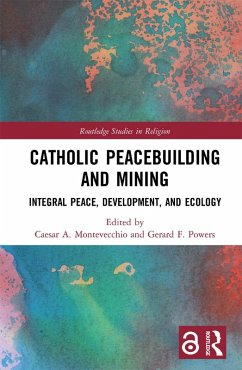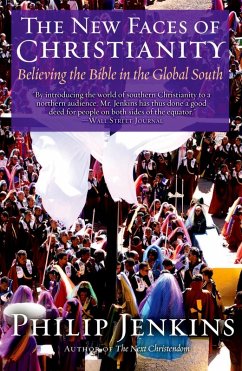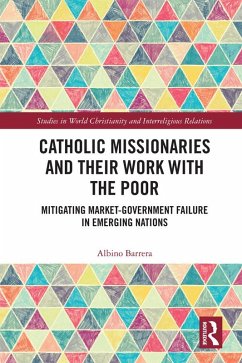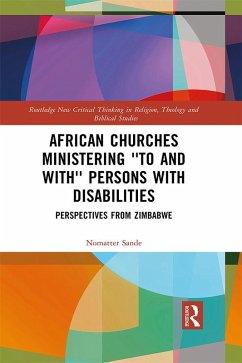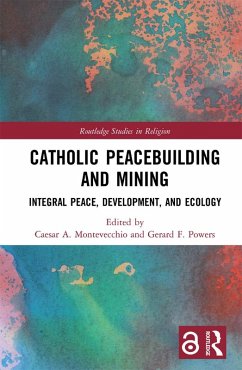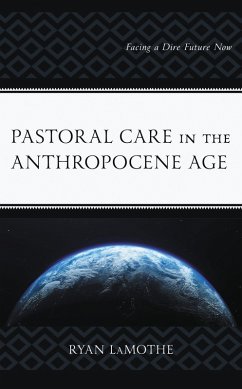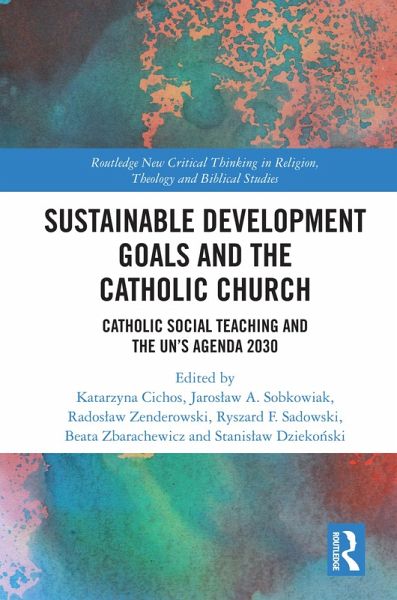
Sustainable Development Goals and the Catholic Church (eBook, ePUB)
Catholic Social Teaching and the UN's Agenda 2030
Redaktion: Cichos, Katarzyna; Dziekonski, Stanislaw; Zenderowski, Radoslaw; Zbarachewicz, Beata; Sadowski, Ryszard F.; Sobkowiak, Jaroslaw A.
Versandkostenfrei!
Sofort per Download lieferbar
42,95 €
inkl. MwSt.
Weitere Ausgaben:

PAYBACK Punkte
21 °P sammeln!
This book identifies both the consistencies and disparities between Catholic Social Teaching and the United Nation's (UN) Sustainable Development Goals (SDGs). With Pope Francis' Laudato si' encyclical, Catholicism seems to be engaging more than ever with environmental and developmental concerns. However, there remains the question of how these theological statements will be put into practice.The ongoing involvement of the Catholic Church in social matters makes it a significant potential partner in issues around development. Therefore, with the use of the comparative method, this book brings ...
This book identifies both the consistencies and disparities between Catholic Social Teaching and the United Nation's (UN) Sustainable Development Goals (SDGs). With Pope Francis' Laudato si' encyclical, Catholicism seems to be engaging more than ever with environmental and developmental concerns. However, there remains the question of how these theological statements will be put into practice.
The ongoing involvement of the Catholic Church in social matters makes it a significant potential partner in issues around development. Therefore, with the use of the comparative method, this book brings together authors from multiple disciplines to assess how the political and legal aspects of each of the UN's 17 SDGs are addressed by Catholic Social Teaching. Chapters answer the question of how the Catholic Church evaluates the concept of sustainable development as defined by the Agenda 2030 Goals, as well as assessing how and if it can contribute to shaping the contemporary concept of global development.
Examining the potential level of cooperation between the international community and the Catholic Church in the implementation of the Agenda 2030 Goals, this volume will be of keen interest to scholars of Catholic Studies, Religious Studies and the Sociology of Religion, as well as Environmental Studies and Development Studies.
The ongoing involvement of the Catholic Church in social matters makes it a significant potential partner in issues around development. Therefore, with the use of the comparative method, this book brings together authors from multiple disciplines to assess how the political and legal aspects of each of the UN's 17 SDGs are addressed by Catholic Social Teaching. Chapters answer the question of how the Catholic Church evaluates the concept of sustainable development as defined by the Agenda 2030 Goals, as well as assessing how and if it can contribute to shaping the contemporary concept of global development.
Examining the potential level of cooperation between the international community and the Catholic Church in the implementation of the Agenda 2030 Goals, this volume will be of keen interest to scholars of Catholic Studies, Religious Studies and the Sociology of Religion, as well as Environmental Studies and Development Studies.
Dieser Download kann aus rechtlichen Gründen nur mit Rechnungsadresse in A, B, BG, CY, CZ, D, DK, EW, E, FIN, F, GR, HR, H, IRL, I, LT, L, LR, M, NL, PL, P, R, S, SLO, SK ausgeliefert werden.




